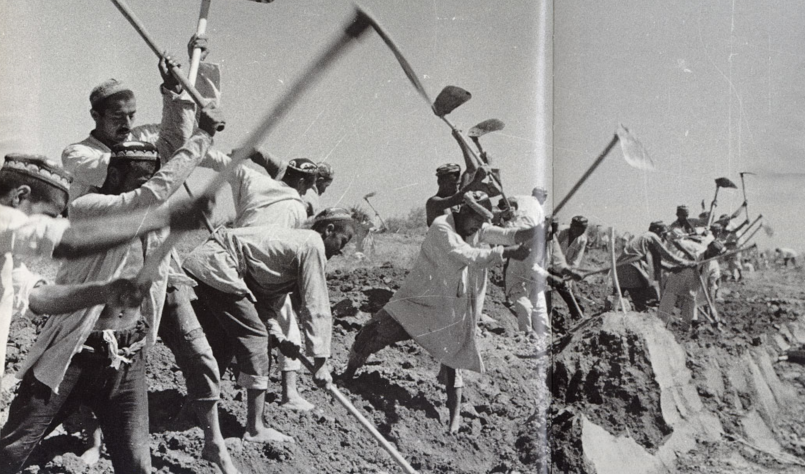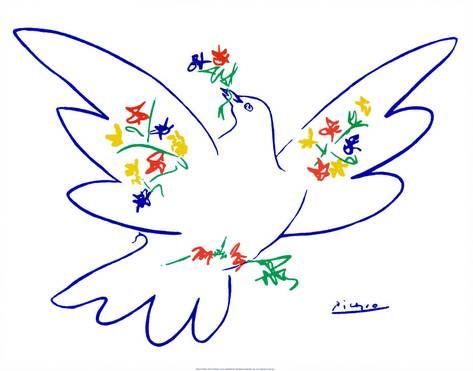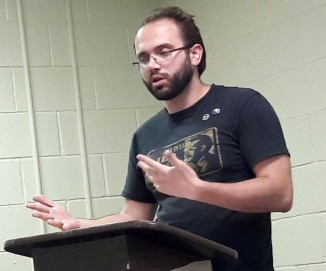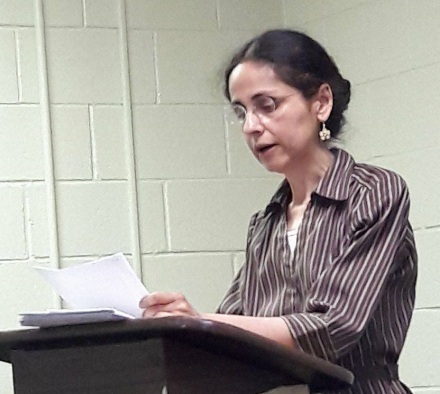On Sunday, January 6th, 2019, around 80 people gathered at the Westside Peace Center to attend a panel discussion entitled “Eco-Socialism or Extinction: Can We Overcome the Existential Threat of Capitalism?” Organized by the Coalition for Peace, Revolution, and Social Justice (CPRSJ), co-sponsored by Extinction Rebellion Los Angeles and Sunrise Movement Los Angeles, and endorsed by System Change Not Climate Change-Los Angeles (SCNCC-LA), the event brought together a panel comprised of eco-socialists and climate-justice organizers, followed by a lively group discussion with participants.
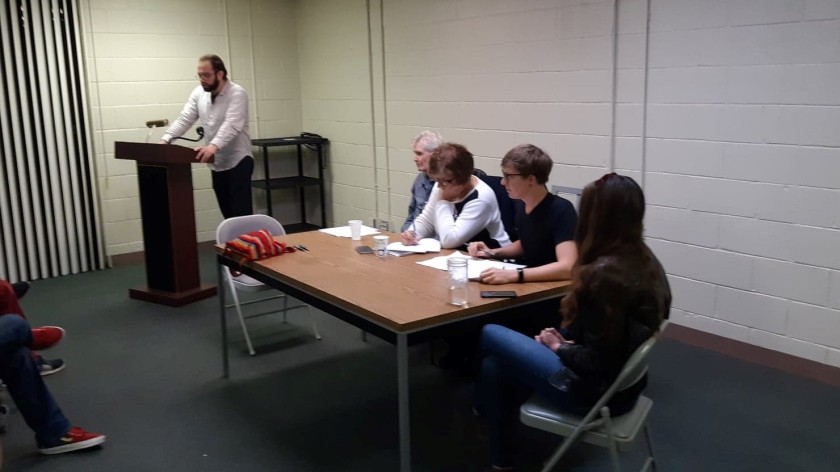
First, moderator Javier Sethness, Black Rose/Rosa Negra Anarchist Federation (personal capacity), introduced the panel and its speakers. Reviewing recent “climate alarms” and the August 2018 “Trajectories of the Earth System in the Anthropocene” paper, which describes the risks the “Earth system” faces due to biosphere degradation and the violation of environmental boundaries, beyond which feedback loops would render global warming a self-perpetuating phenomenon, resulting in the grim reality of “Hothouse Earth.” Identifying the primary obstacle to the realization of a global eco-socialist transition away from the path of climate breakdown as being capitalist hegemony and concentrated State power, whether in the hands of Donald Trump, Vladimir Putin, Xi Jinping, Mohammed bin Salman, or Jair Bolsonaro, he recommended a radical strategy characterized by managed decline, ecological restoration, “natural” geo-engineering, and green syndicalism.
Next, Mariah Brennan Clegg, from the Bonfire Anarchist Collective and UC Santa Barbara Campus Marxist-Humanists, spoke in favor of eco-decentralization, following from their analysis that ecological devastation results from hierarchy, and that participatory solutions can help build popular community resilience. Clegg emphasized the dysfunctionality of centralized economic systems, resulting in the dyads of ‘sacrifice zones’ (such as the “cancer villages” of Louisiana or China) and ‘sanctuary zones’ (Beverly Hills, malls, gated communities). Instead, they argued in favor of the unification of bio-regions (or biological regions) with “techno-regions,” by which they mean spaces in which the trans-human dimension is integrated into production and social institutions designed for use-value in place of profit and self-management in place of domination.
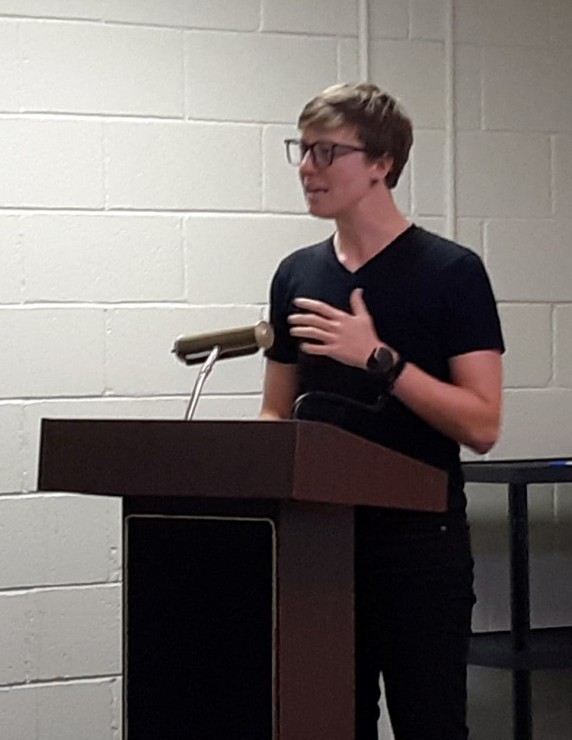
Sydney Ghazarian, from the Democratic Socialists of America-Los Angeles Climate Justice Committee and DSA Ecosocialist Working Group, dedicated her comments to thinking through many of the implications of the October 2018 Intergovernmental Panel on Climate Change (IPCC) report for leftist organizing: that is, given that it warns us clearly that mass-extinction is a very real near-term possibility, due to the hegemony of capitalism. She emphasized firstly that the findings of this report must inspire a strong sense of urgency on the part of the radical left, considering that we have at most 11 years to prevent catastrophic climate breakdown. Ghazarian added that the World Wildlife Foundation (WWF) estimates that, 1-2 years before the deadline for the Aichi Targets on biodiversity (2010), “average wildlife population sizes could decline by two-thirds from their 1970 levels.” Secondly, that left organizing strategy under these conditions should take advantage of the multiple emerging crises to bring about a wide-ranging eco-socialist regeneration of society. Ghazarian calls this the “people’s shock doctrine,” and it echoes Andreas Malm’s recommendations on eco-socialist strategy, based on an observation and analysis of the Russian and Syrian Revolutions. Rooted in a vision of an interconnected, multi-level plan to project people power against hegemonic capitalist power, Ghazarian’s proposal would unite the climate movement and the left to transform the economic and political spheres into a zero-emissions society that would restore devastated ecosystems and human communities. Citing a letter published in Nature in 2017 which concludes that we have approximately a 5% chance that global warming will be limited to 2°C, she underscored that ecological revolution might be humanity’s last chance.

